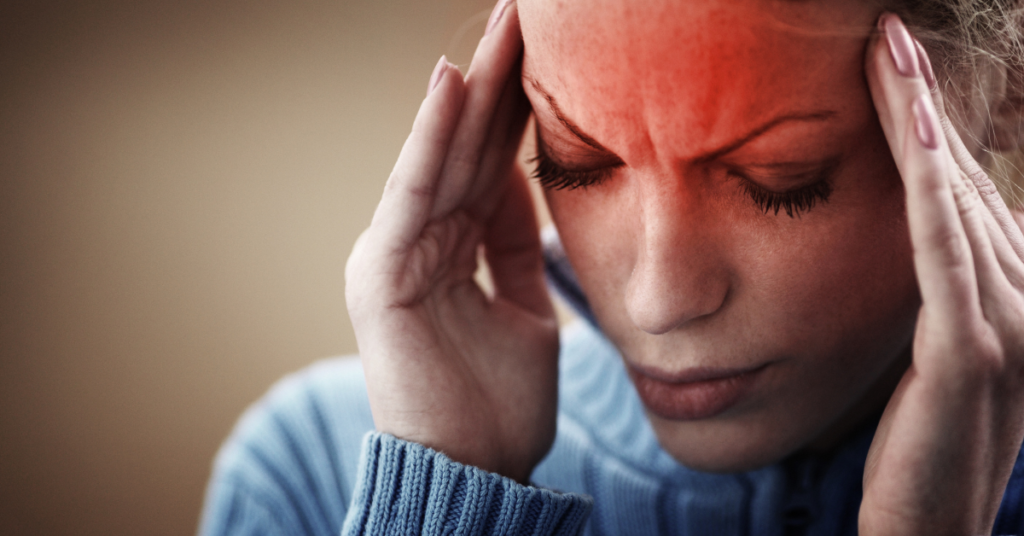Do you wish for a natural cure for both sleep problems and anxiety? Valerian root could be your answer. Often called “nature’s Valium,” this herb has a long history. It comes from Europe and Asia. It works by touching GABA receptors and helping to balance mood and sleep. Many are turning to valerian root for better sleep and to ease anxiety But does it really work well?
Key Takeaways
- Valerian root is a well-renowned natural sleep remedy.
- It has been used since the Middle Ages primarily for treating sleep disturbances.
- The herb interacts with GABA receptors and potentially modulates neurotransmitters essential for sleep regulation and mood balance.
- Valerian root is commonly used for herbal anxiety relief as well.
- It’s increasingly popular among those seeking a natural approach to improving sleep and managing anxiety.
Introduction to Valerian Root
Valerian, or Valeriana officinalis, is key in herbal medicine for calming anxiety and helping with sleep. It’s a perennial plant, often found in sleep aid herbs. Its roots smell strong, even though it has pretty flowers. Valerian root’s sedative use makes it a common choice in sleep and anti-anxiety supplements.
What is Valerian Root?
Valerian root is the part of the plant beneath the ground. It’s used to make valerian root extract. This extract is well-loved around the world and is made into capsules, teas, and tinctures. Many people use valerian root in herbal medicine to help with sleep and stress.
Historical Uses of Valerian
Valerian has a long history, dating back to ancient Greece and Rome. It was mostly used for sleep and mood issues. Important doctors like Hippocrates said it could help with a lot of health problems. Today, it’s still very popular in sleep aid herbs for making people feel more relaxed and sleep better.
How Valerian Root Works
Valerian root is well-known for helping you relax and sleep better. It works by interacting with the central nervous system. This leads to changes in different neurotransmitters.

The Active Compounds in Valerian Root
Key compounds in valerian root are valerenic acid and valerenol. They are essential for the herb’s benefits. These compounds engage with GABA receptors in the brain. This process helps in promoting calm and sleep.
The mix of these compounds is what makes valerian effective for sleep.
Effects on GABA and Neurotransmitters
Valerian affects GABA receptors, which helps you feel calm. GABA is a neurotransmitter that promotes relaxation and lowers anxiety. Valerian’s key compounds enhance GABA’s activity. This makes valerian good for sleep. It may also impact serotonin and adenosine receptors. This broadens its effect on the brain.

Valerian Root for Sleep Improvement
Recent studies have found that valerian root can help improve sleep quality. It works well for people with insomnia and sleep troubles.
Scientific Studies on Sleep Benefits
Many research pieces show that valerian root can make you fall asleep quicker. This leads to better overall sleep quality. Studies with postmenopausal women and people with ongoing insomnia show hopeful results. Herbal sleep support from valerian root helps improve sleep start time and quality.
Dosage and Recommendations for Sleep
The suggested valerian root intake is between 450–1,410 mg daily for 4–8 weeks. People might need different amounts, so the dosing can change. It’s important to start with a smaller amount and adjust as suggested. This way, you can find what works best for your sleep.
Valerian Root for Anxiety Management
Valerian root is known for helping to lower anxiety. It’s part of many studies looking at easing everyday stress and certain anxiety issues.
Research on Anxiety Reduction
Studies suggest valerian can lower anxiety by adjusting how neurotransmitters work. This could be good news for those feeling stressed or anxious all the time.
Comparative Studies with Other Treatments
Valerian has shown good results compared to other alternative anxiety treatments. It’s said to help with worrying and doing things over and over. But, keep in mind, there are only a few studies on how well it works in humans for stress relief.

Other Health Benefits of Valerian Root
Valerian root is not just for sleep and anxiety. It also helps with other health issues. It can make menopause easier, relieve menstrual pain, and aid with Restless Legs Syndrome (RLS).
Menopausal Symptoms
It’s shown that valerian root can help with menopausal relief. It reduces the number and intensity of hot flashes. This is thanks to its ability to balance hormones. So, it makes the menopause journey less tough for women.

Menstrual Issues
Valerian root can bring relief to those with menstrual pain. Its relaxing effects help with muscle cramps. By adding valerian to your self-care, periods can become more bearable.
Restless Legs Syndrome
For people with RLS, valerian root might help ease their symptoms. It works by relaxing the body and reducing muscle tension. So, turning to valerian could be a natural approach for handling RLS.

Possible Side Effects of Valerian Root
Valerian root is well-loved for its calming effects. But it’s important to know there are potential risks too. Before adding it to your health routine, learning about valerian root safety is key.

Common Side Effects
Valerian root can cause headaches, dizziness, and stomach issues. These issues are usually minor. But, they do show the need to understand the herbal supplement cautions.
Rare and Severe Reactions
Some people might have rare, serious reactions to valerian root. This includes allergies and, in rare cases, damage to the liver. Always talk to a doctor before taking it, especially if you have health problems.

Who Should Avoid Valerian Root?
Pregnant or nursing women, kids, and those on certain medications should steer clear of valerian root. Knowing about herbal supplement cautions helps lower the risk of bad effects. It makes valerian root safety better understood for everyone.
How to Take Valerian Root
Understanding valerian root’s many forms is the key to using it well. It comes as teas, capsules, or tinctures. Pick the type that fits your life best.
Different Forms of Valerian Supplements
Valerian root can be found in teas, capsules, and tinctures, each with its own use. Teas help you relax before sleep. Capsules make dosing easy and accurate. Tinctures get to work fast and allow for tailored doses, great for quick effects.
Recommended Dosages
The right amount of valerian root changes based on what you need it for. For sleep or anxiety, 400-450 mg is usual. But some health issues might require up to 1,410 mg. Always start with a lower dose and go up slowly, watching for how you react.

Best Time to Take Valerian
When you take valerian is very important. For better sleep, have it 30 minutes to two hours before bed. For dealing with anxiety, small doses over the day might work better. Timing is key for valerian’s success.
Safety and Precautions
Before using valerian root, it’s important to know safety concerns and precautions. This helps you get the most benefits with the least risk.
Drug Interactions
Valerian root may interact with some medications, especially those processed by the CYP3A4 enzyme. If you take prescription drugs, it’s wise to ask a professional first. This prevents any negative effects on your health or how well your medicine works.
Advice for Pregnant and Nursing Women
For pregnant and nursing women, using valerian root requires extra care. There’s not enough clear info on its effects for these groups. It’s best to get advice from a healthcare provider. This makes sure both you and your baby stay safe and healthy.
Long-term Use Considerations
The long-term use of valerian root is not fully researched. So, it’s smart to be careful. Make sure to check how much and how long you use it with your doctor. This step helps avoid possible health problems. Always keeping long-term herbal use rules in mind is crucial.

Conclusion
Valerian root is known for its historical use and potential to improve sleep and reduce anxiety. It is an important part of a holistic sleep strategy, working by affecting GABA receptors and changing neurotransmitters. This leads to better mood and relaxation. Although studies show it can help with sleep and anxiety, we should look at valerian’s use carefully.
But, it’s critical not to ignore the side effects and how valerian might interact with other drugs. People might get headaches or have stomach problems. Some could have very serious but rare reactions. Since there isn’t enough long-term safety information, we should be careful, especially pregnant and nursing women.
By taking the right steps, valerian could be a good addition to support mental health and better sleep. More research in the future will tell us more about how safe and effective it is. Adding valerian to your health routine might help those who have trouble sleeping or feel anxious. This shows why it’s important to keep looking into natural remedies like valerian. It also highlights the value of mixing old and new ways in health care.
